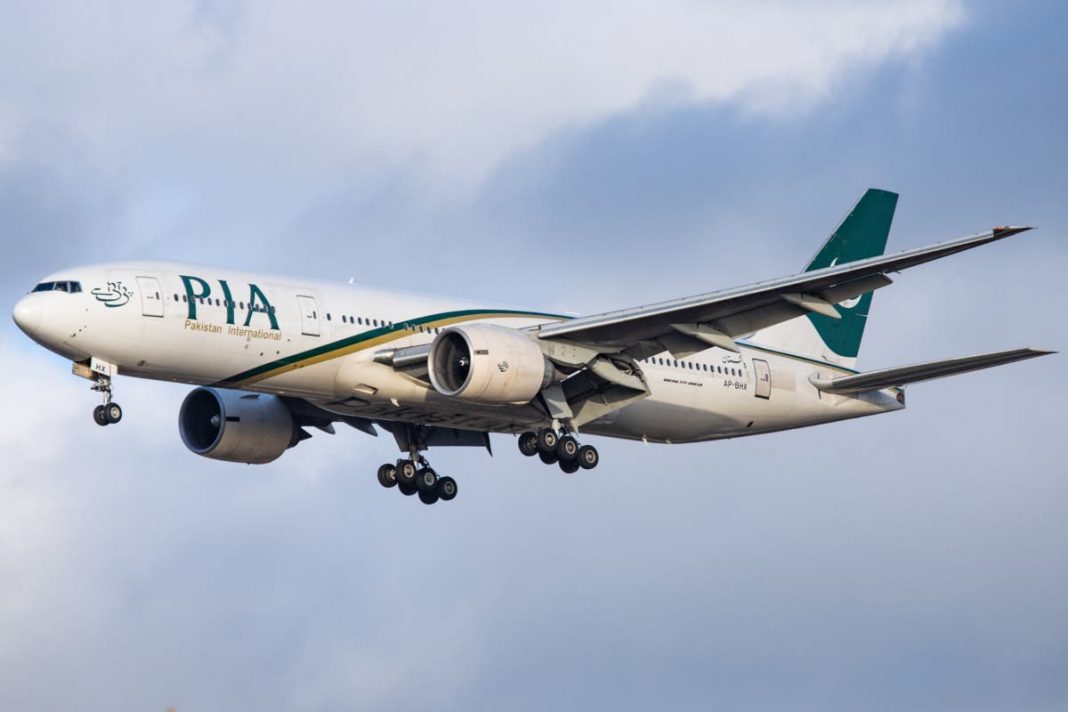Last week, the European Union Aviation Safety Agency (EASA) issued a six-month ban on Pakistan International Airlines (PIA) in European Union airspace. The agency is now taking precautions one step further, recommending that third-country operators bar all pilots licensed by the Pakistan Civil Aviation Authority (PCAA).

In the aftermath of the deadly crash outside of Karachi of flight PK8303 in May, some quite jaw-dropping data is coming to light. The fatal accident has been attributed to pilot errors, expediting an already ongoing investigation into irregularities with certificates.
262 pilots with “dubious” credentials
A full 262 Pakistani pilots are now suspended and under investigation for holding what the country’s Minister for Aviation, Ghulam Sarwar Khan, is calling “dubious” credentials.
As a result, the EASA first banned PIA from operating in EU airspace for the coming six months. This was a blow to the airline, which had hoped to resume flights to Oslo, Copenhagen, Barcelona, Paris, and Milan next month.
Grave safety concern
Now the agency has taken it a step further. On Tuesday, it sent a letter to third-country operators, recommending they suspend all pilot validations issued against Pakistani licenses. It also requested that any carrier employing pilots holding Pakistani validated licenses inform the agency of any measures taken or planned to that regard.
“Approximately 40 per cent of the airline pilot licenses issued by PCAA are either falsified or otherwise not ICAO [International Civil Aviation Organization] compliant,” read the letter seen by Simple FLying. “This is a grave safety concern.”

Ongoing investigation
While the list is being challenged by Pakistani airlines and pilot unions, it included 141 pilots from PIA, nine from Air Blue, ten from Serene Airline, and 14 from Shaheen Airlines. One hundred nine are commercial aviation pilots and 153 airline transport. A probe into their qualifications reportedly revealed that these pilots had either cheated on their exams or enlisted others to take it in their place.
While the fatal accident of PK8303 in May this year, which killed 97 people, has expedited the probe into pilot credentials, it was not what initiated it. The investigation began after a crash landing two years ago. Following the 2018 accident, it was discovered that the pilot captaining the plane could not possibly have been present to sit his exam as he had been on holiday on the test date.

Crossroads for Pakistani aviation
Pakistan has a generally patchy record in terms of aviation safety. Perhaps these startling figures may spur a much-needed overhaul of the system and a pivot towards an enhanced focus on safety.
“The institution has reached the point of moral bankruptcy, not financial. Pakistan now has a choice to make whether to keep or alter its reputation for crashes”, Shahzad Chaudhary, a retired vice air force marshal, told Deutsche Welle.
Do you believe the information now coming to light will have an impact on overall aviation in safety in Pakistan? Do you think the EASA is correct in its recommendations? Let us know in the comments
[ad_2]
Source link



